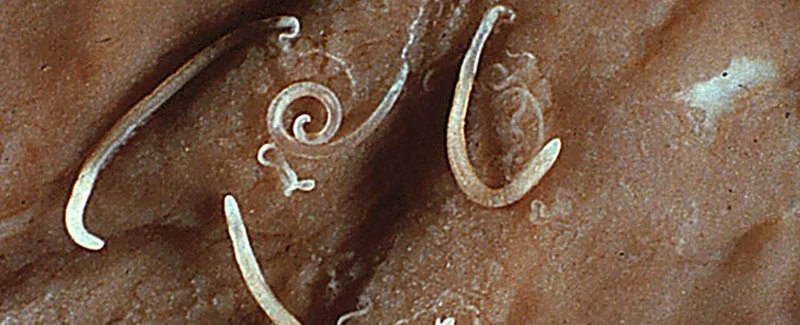
Imagine whipworms as tiny, resilient worms that thrive in specific environments. They’ve got a unique life cycle that makes them particularly interesting for researchers. Studying whipworms could reveal more about parasitic infections and their effects on human health, potentially leading to new treatments. But how do you even start to farm or study such small, elusive creatures? Here’s what you need to know.
Understanding Whipworms: What Are They?
Whipworms are parasitic worms that primarily affect the intestines of humans. They resemble tiny whips, hence the name, with a long, thin body and a thicker end. These worms can cause an infection known as trichuriasis, which often leads to various gastrointestinal problems. When whipworms invade the intestines, they can cause symptoms like abdominal pain, diarrhea, and even anemia.
You might be asking, “How do people get whipworms?” Well, it’s often through ingesting the eggs, which can be present in contaminated food or water. Once ingested, the eggs hatch in the intestines, and the larvae mature into adult worms. It’s a pretty wild life cycle that highlights their adaptability. Understanding this life cycle is crucial for anyone considering studying or farming whipworms.
The Importance of Studying Whipworms
So, why bother studying whipworms? For one, they’re not just a nuisance. In many developing regions, whipworms are a significant public health concern. Understanding how these parasites function can help scientists develop better treatments and preventive measures. Additionally, some studies suggest that whipworm infections might even play a role in regulating immune responses. This means they could hold the key to understanding autoimmune diseases.
By studying whipworms in captivity, researchers can observe their behavior, reproduction, and response to medications in a controlled environment. This could lead to breakthroughs not just in treating whipworm infections, but also in understanding other diseases related to parasitic infections. It’s like having a front-row seat to the inner workings of a complex biological system.
Can Whipworms Be Farmed in Captivity?
Farming whipworms might sound unusual, but it’s not impossible. Creating a controlled environment for whipworms involves replicating their natural habitat as closely as possible. This means setting up suitable conditions like temperature, moisture levels, and a source of food that mimics their natural diet.
However, farming whipworms comes with challenges. Keeping the right balance of conditions to support their life cycle is crucial. Researchers typically simulate the human gut environment to study how whipworms develop and interact with their hosts. This allows them to observe how the parasites behave without the ethical concerns that come with infecting humans.
Methods of Studying Whipworms in Captivity
There are several methods scientists use when studying whipworms. Here are a few:
- In vitro studies: This involves using laboratory cultures to observe whipworm development and behavior under controlled conditions.
- Animal models: Researchers may infect animal hosts with whipworms to observe how the parasites interact with the immune system and test potential treatments.
- Field studies: This approach allows researchers to gather data on whipworm infections in natural environments, helping to understand their impact on public health.
Each of these methods provides valuable insights into whipworm biology and potential implications for human health. By blending laboratory research with field studies, scientists can get a comprehensive picture of how these parasites operate.
Ethical Considerations in Whipworm Research
When it comes to studying whipworms, ethical considerations are paramount. Researchers must ensure that their methods do not harm living organisms or violate ethical standards. This means carefully planning experiments and choosing humane methods to study whipworms in captivity.
One important aspect is ensuring that any animal models used in studies are treated with care and compassion. Research involving whipworms and their effects on hosts raises questions about the balance between advancing knowledge and respecting animal welfare. The goal should always be to gain insights that could lead to better health outcomes for humans without causing unnecessary suffering to other beings.
Potential Applications of Whipworm Research
The implications of whipworm research go beyond just understanding these parasites. Here are a few potential applications:
- Treatment improvements: By gaining insights into how whipworms affect the immune system, researchers can explore new ways to treat not only whipworm infections but also other autoimmune diseases.
- Public health strategies: Understanding whipworm transmission can help develop better sanitation and health education strategies in at-risk communities.
- Biological insights: Studying whipworms could shed light on parasitic life cycles in general, leading to breakthroughs in parasitology.
These applications highlight the importance of whipworm research—not just for understanding these pesky parasites, but for broader health implications.
Challenges and Limitations in Studying Whipworms
Despite the potential benefits, there are challenges to studying whipworms in captivity. For starters, replicating their natural environment isn’t easy. Whipworms rely on specific gut conditions to thrive, and creating an artificial setup that mimics this balance can be complex.
Additionally, the ethical and regulatory aspects of working with parasitic organisms can limit research. Scientists must navigate various policies that govern how they can study these creatures, which can sometimes slow down progress.
Finally, funding can be a challenge. Research on lesser-known parasites like whipworms might not attract as much attention or financial support as more prominent health issues. This makes it important for scientists to communicate their findings and push the importance of understanding whipworms to gain necessary resources.
Studying whipworms in captivity is a fascinating area of research with potential implications for public health and science as a whole. Whether we’re looking at their complex life cycle or the impact they have on human health, there’s a lot to learn. While farming whipworms presents certain challenges, the possibility of uncovering valuable insights keeps researchers engaged in this critical work.
As we move forward, understanding whipworms may not only help us treat infections but also offer hints at regulating immune responses in humans. If you’re curious about the world of parasites, whipworms offer a unique peek into a complex biological story. With continued study, we can hope to unlock their secrets and improve health outcomes for many.
